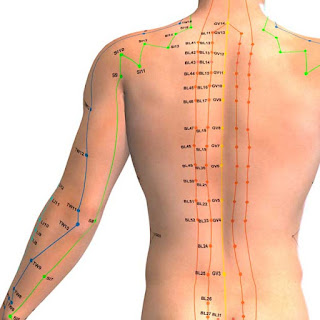Living with chronic pain can be a challenging and debilitating experience. It affects millions of people worldwide and often leads to a decreased quality of life. While conventional medicine plays a crucial role in managing chronic pain, more and more individuals are turning to holistic approaches to complement their treatment. Holistic approaches focus on treating the whole person—body, mind, and spirit—rather than just the symptoms. In this blog post, we will explore some holistic approaches that can help manage chronic pain and promote overall well-being.
1. Mind-Body Techniques:
One of the fundamental principles of holistic medicine is the mind-body connection. Various mind-body techniques can be effective in managing chronic pain. Meditation, for example, promotes relaxation and helps reduce stress, which can exacerbate pain. By practicing mindfulness meditation, individuals can develop a greater sense of awareness and acceptance of their pain, leading to decreased suffering.
Another powerful mind-body technique is cognitive-behavioral therapy (CBT). CBT helps individuals reframe negative thoughts and develop coping mechanisms to deal with pain. It focuses on changing behavior patterns, improving sleep, managing stress, and enhancing overall emotional well-being.
2. Acupuncture:
Acupuncture is an ancient Chinese practice that involves inserting thin needles into specific points on the body to restore the flow of energy. It is believed that stimulating these points helps release endorphins, the body's natural painkillers, and promotes overall healing. Many people find acupuncture effective in managing chronic pain, including back pain, migraines, and arthritis. It is a safe and non-invasive treatment option that can be used alongside conventional medical treatments.
3. Physical Therapy:
Physical therapy is a holistic approach that focuses on improving strength, flexibility, and mobility. A skilled physical therapist can create an individualized exercise program tailored to the needs of the person with chronic pain. These exercises can help reduce pain, improve function, and prevent further injury. Physical therapy may also involve other techniques such as massage, heat or cold therapy, and electrical stimulation to provide pain relief.
4. Herbal Remedies:
Herbal remedies have been used for centuries to treat various ailments, including chronic pain. Some herbs, such as turmeric, ginger, and devil's claw, have anti-inflammatory properties and can help reduce pain and inflammation. Others, like valerian root and passionflower, can promote relaxation and improve sleep quality. It's important to consult with a qualified herbalist or healthcare provider before trying any herbal remedies to ensure their safety and effectiveness.
5. Nutrition and Diet:
What we eat can significantly impact our overall health and well-being, including chronic pain. Following an anti-inflammatory diet rich in fruits, vegetables, whole grains, lean proteins, and healthy fats can help reduce inflammation in the body, which may contribute to pain. Avoiding processed foods, excessive sugar, and trans fats is also beneficial. Additionally, certain supplements like omega-3 fatty acids, magnesium, and vitamin D have shown potential in managing chronic pain.
6. Alternative Therapies:
Various alternative therapies can complement conventional treatments for chronic pain. These include massage therapy, chiropractic care, aromatherapy, and biofeedback. Each therapy has its own unique approach and benefits, but they all aim to provide pain relief, promote relaxation, and enhance overall well-being.
Holistic approaches to managing chronic pain recognize the interconnectedness of physical, emotional, and spiritual aspects of health. While they may not eliminate pain entirely, they can significantly improve a person's quality of life and empower them to take an active role in their well-being. It's important to remember that what works for one person may not work for another, so it's crucial to explore different approaches and work closely with healthcare professionals to find the most effective holistic treatment plan for each individual.
In conclusion, holistic approaches to managing chronic pain offer a comprehensive and patient-centered approach to pain management. By addressing the physical, emotional, and spiritual aspects of pain, individuals can experience relief, improved function, and an enhanced sense of well-being. It's an empowering way to take control of one's health and move towards a more pain-free and fulfilling life.
Tag:-"Natural remedies for chronic pain" "Mind-body techniques for chronic pain relief" "Holistic pain management strategies" "Alternative therapies for chronic pain" "Integrative approaches to chronic pain relief" "Complementary medicine for managing chronic pain" "Holistic lifestyle changes for chronic pain management" "Non-pharmacological methods for chronic pain relief" "Effective holistic treatments for chronic pain" "Mindfulness practices for managing chronic pain"






